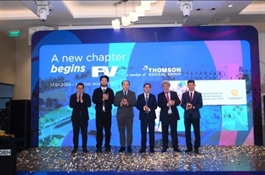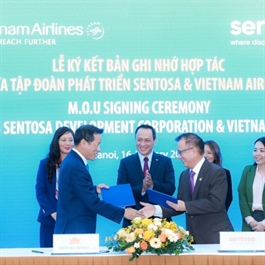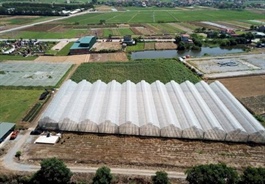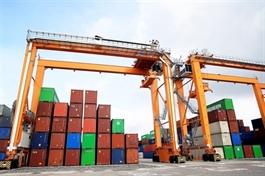Consumer industry more mature thanks to digital efforts
Consumer industry more mature thanks to digital efforts
Digitalisation of the supply chain has helped consumer businesses shorten the distance with customers and achieve higher results in terms of revenue, profit, and brand reputation.

Nestlé Vietnam has been making further commitments to long-term investment in Vietnam through prioritising resources for digital transformation in production and building smart factories.
CEO of Nestlé Vietnam Binu Jacob stated that Nestlé will continue to invest in the appropriate technology to digitise data.
“We have taken advantage of performance potential as well as sustainable development opportunities thanks to digital transformation. We have reduced production downtime by 60 per cent, paper consumption in the factory by 50 per cent, and maintenance costs by 20 per cent through smart sensors and digitised data,” Jacob said.
Thanks to digital transformation, the business has connected employees at all levels effectively, while contributing to reduce carbon emissions by up to 38,000 tonnes a year, bringing Nestlé closer to its ambition to achieve net-zero greenhouse gas emissions.
Similarly, many consumer goods companies have considered digitalisation as an important DNA pushing them towards higher business goals, and Unilever Vietnam is one of the typical representatives.
Pham Manh Tri, supply chain vice president at Unilever Vietnam, said, “Digital transformation not only helps Unilever fuel most of its activities, creating motivation to improve production capacity and position of the business in the market, but also supports us in promoting effective customer outreach and developing human resources in accordance with future trends.”
Unilever has left its mark in the field of digitalisation with specific roadmaps and strong commitments made over several years. The business has realised the goal of digitising the entire production and supply chain, increasing the speed of operations throughout the chain by 10 times through the Internet of Things and AI system.
Unilever’s factories not only automate production lines but also quickly move towards smart factory models and robotisation. In addition, Unilever has utilised digital sales models, data-driven marketing, and new technologies such as machine learning, extended reality, or investments in digital talents by attracting talents, providing in-depth training, and implementing key projects.
Vietnam is one of Unilever’s first markets to establish a specialised digital transformation expert group, internally training more than 300 data analysts and creating a digital transformation movement across departments.
Vietnam, along with Indonesia and Thailand, are the three largest digital economies in Southeast Asia and the fastest growing economies in 2022-2030, according to a report on the consumer industry’s journey towards digital maturity released by Deloitte Vietnam on January 3.
Increased digital adoption at the consumer level is expected to drive sustained growth across the region through 2025, the report said. In particular, three key trends shaping the consumer industry’s journey towards digital maturity include building a digital business, embracing digital culture and adopting a seamless omnichannel approach.
According to the report, consumer companies will need to focus on four key priorities: adopting accelerated fast-followers strategies, optimising logistics for digital commerce, implementing both prescriptive and predictive analytics, and investing in in-house talent development to advance the journey towards digital inclusion.
In Vietnam, the scale of the digital economy is forecast to have grown to $49 billion in 2023 and could reach $200 billion in 2030.























